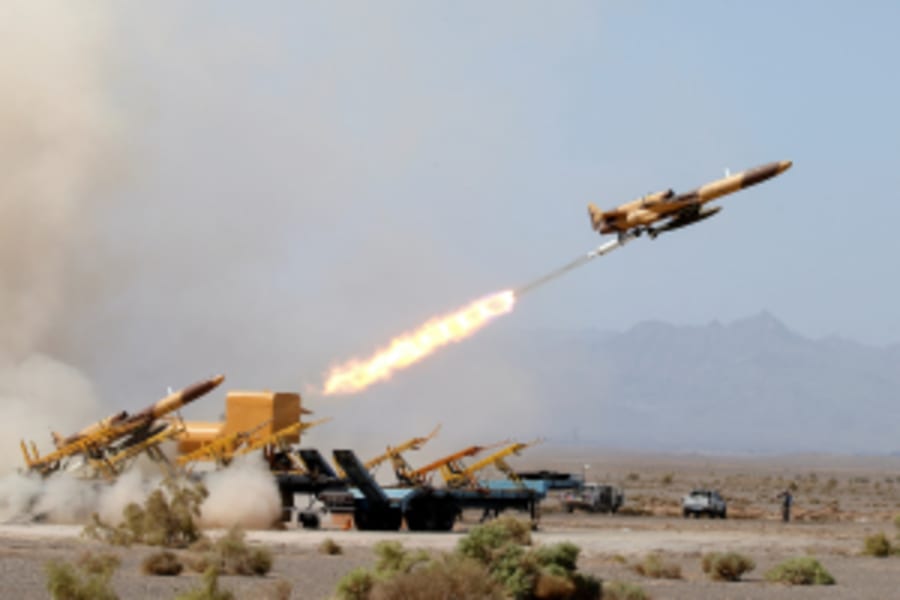Sweden announces end to UNRWA funding, seeks viable alternative aid agencies

Sweden has announced its decision to halt funding the controversial UNRWA agency, Aid Minister Benjamin Dousa told the Swedish broadcaster TV4 on Friday. He emphasized that the decision was tied to the Israeli parliament's move to ban UNRWA beginning in January 2025, citing the agency's alleged close ties with Hamas and other terrorist organizations.
"Israel's two decisions in the Knesset, which Sweden has criticised, will make many of UNRWA's activities more difficult and impossible," Dousa wrote on 𝕏.
"Swedish aid must reach its destination, not get stuck in a bank account along the way. Due to Israel's decision in the Knesset, we are therefore forced to pass on the aid to other organisations," the minister continued.
While Sweden is cutting its ties with UNRWA, it has simultaneously decided to nearly double its aid to Gaza from 451 million kronor (around $41 million) to 800 million kronor (over $72 million) via alternative channels.
“There are several other organizations in Gaza, I have just been there and met several of them,” the minister announced, specifically mentioning the UN World Food Programme as a potential candidate.
Meanwhile, Swedish Social Democrat opposition lawmaker Morgan Johansson criticized the government’s decision to cut ties with UNRWA.
“This is a catastrophic decision. The conditions in Gaza are already terrible, and only UNRWA has the infrastructure to distribute supplies in the volumes needed,” Johansson argued.
Philippe Lazzarini, the UNRWA Commissioner-General also blasted the Swedish government’s decision.
“The decision by the Government of Sweden to stop funding UNRWA in 2025 is disappointing and comes at the worst time for Palestine Refugees,” Lazzarini wrote on 𝕏. “Defunding UNRWA now will undermine decades of Sweden’s investment in human development including by denying access to education for hundreds of thousands of girls and boys across the region.”
“I hope the Government of Sweden will reconsider its decision and pursue its longstanding solidarity by investing in both a political solution and the human development of Palestine Refugees through UNRWA,” Lazzarini concluded.
In September, the Israeli Knesset decided to ban UNRWA inside Israel and restrict its operations in Judea, Samaria and Gaza due to the UN agency’s strong ties to the terrorist organization Hamas.
The Israeli Prime Minister’s Office (PMO) in Jerusalem emphasized at the time that Israel was prepared to work with humanitarian aid agencies that do not pose a threat to Israel's security.
“Since avoiding a humanitarian crisis is also essential, sustained humanitarian aid must remain available in Gaza now and in the future. In the 90 days before this legislation takes effect – and after – we stand ready to work with our international partners to ensure Israel continues to facilitate humanitarian aid to civilians in Gaza in a way that does not threaten Israel’s security,” the PMO stated.
This past January, the United States and several other nations decided to suspend financial aid to UNRWA after Israel presented incriminating evidence that several of the UN agency workers were involved in the Oct. 7 Hamas massacre of 1,200 Israelis and kidnapping of 251 men, women and children from southern Israeli border communities.
However, international aid to UNRWA was largely restored after a politicized panel in April whitewashed the UNRWA terrorism scandal, claiming that Israel had not provided sufficient evidence of links between UNRWA and Hamas.
Israeli intelligence has estimated that at least 10% of UNRWA’s staff in Gaza have links to Hamas and other terrorist organizations.
In February, Israeli forces in Gaza discovered Hamas weapons inside UNRWA offices and an underground terror intelligence center below UNRWA’s headquarters in Gaza.
The agency claimed it was not aware of the Hamas intelligence center below its main facility.

The All Israel News Staff is a team of journalists in Israel.













